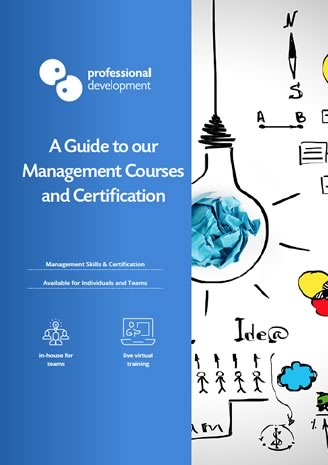The references to “yellow belt”, “green belt”, “black belt” that crop up when you start to research process improvement and lean six sigma can be very confusing.
You’re simply interested in improving processes and reducing waste where you work, but on your first search you’re bombarded with questions like “what is lean six sigma?” and “what are lean six sigma belts?”.
This article is a short introduction to the different lean six sigma belt levels.
In This Article:
- What is the difference between lean six sigma and six sigma belts?
- How many belts are there?
- What does each belt level mean?
- Other roles in lean six sigma
- Where should you begin?
Completely new to Lean Six Sigma?
Are you still asking yourself “what is lean six sigma?”.
If yes, we recommend reading our article on this subject or downloading our complete PDF guide before reading about lean six sigma belts.
What is the difference between lean six sigma and six sigma belts?
The short answer to this question is: the style of training and knowledge gained.
Lean and six sigma are individual methodologies that can be used either separately or combined.
Some certification programmes focus purely on statistical, six sigma tools. The resulting belt certifications are called “six sigma belts”.
Other programmes combine lean and six sigma, with the resulting certifications named “lean six sigma belts”.
There is no “best approach” here, only what is right for your training needs.
We find that participants benefit most from the combined lean six sigma format, as it gives them a fully rounded understanding of process improvement techniques.
This is why our yellow, green, and black belt programmes all incorporate both lean and six sigma.
How many belts are there?
There are 5 belt levels within the lean six sigma system. They are:
- White Belt
- Yellow Belt
- Green Belt
- Black Belt
- Master Black Belt
What does each belt level mean?
The six sigma belt system is a hierarchical framework. Each belt level is a reflection of knowledge, skill, and experience.
While precise role and knowledge will vary, depending on the training programme, the overall definition of each level remains the same.
Here is a quick summary of each belt level:
White Belt
White belts have a general knowledge and understanding of lean concepts.
The can contribute to or support other belt levels in carrying out process improvement projects.
Often, when organisations wish to introduce a process improvement culture, everyone will receive a white belt level of training to understand and participate actively in that culture.
Yellow Belt
Yellow belts have a deeper level of understanding of and capability with lean than white belts. They are also aware of and can utilise some six sigma concepts.
Yellow belts can run smaller process improvement projects within their own role, team, or department.
They also support and are mentored by green belts.
Our lean six sigma yellow belt course focuses on a practical approach, equipping participants with skills they can begin utilising in their everyday work immediately.
Green Belt
Lean six sigma green belts are fantastic all-rounders in the process improvement world.
They hold the middle ground between white and yellow belts, and the more experienced, strategic level black belts.
Green belts have a strong level of knowledge and capability with lean six sigma.
Of all the lean six sigma courses we deliver, our green belt training runs the most frequently. This is because those in a green belt role:
- can both run and contribute to process improvement projects
- possess a solid understanding of both lean and six sigma
- mentor yellow belts and white belts in how to apply lean six sigma within their roles
- can support black belts in larger, more complex initiatives
Black Belt
Black belts are experienced with process improvement. These practitioners have participated in and led many projects by the time they come to train and certify at black belt level.
They lead wide-scoped and complex projects, often driving continuous improvement at a leadership level.
They are strategic thinkers who look at process improvement on a larger scale than the other belt levels.
Black belts can mentor all levels, but in particular they guide and advise green belts.
Master Black Belt
Master black belts are rare. They are experienced black belts who progress to an even higher level of lean six sigma knowledge and capability.
Master black belts often work as specialised consultants, or at a very high leadership rank in an organisation.
Other Roles in Lean Six Sigma
There is another important role that sits outside the lean six sigma belts system. It is that of the Champion.
A Champion is someone who sponsors or supports the implementation of a lean six sigma culture within a department, project, or organisation.
Champions are most frequently at executive leadership level.
Lean six sigma is at its most transformational and effective with management support. Therefore, this role is crucial for companies that wish to create a continous improvement culture.
Where should you begin?
From reading the role outlines above, you may already have an idea of the right fit for your lean six sigma training.
Where to begin depends on a number of factors:
- Your previous experience with lean six sigma and process improvement
- How much you want to specialise in this skill area
- Your role within your organisation
- Your career goals
We have listed a few quick recommendations below. If you would prefer to get tailored advice, our training consultants will be happy to help.
You can call us directly at Freephone 1800 910 810 or use the “Ask a Question” button below to send your query online.
Ask a QuestionScenario 1: Looking for an Introduction + Usable Skills
- You’re new to process improvement and would like to complete a short training course to decide if it’s the right path for your development.
- You would like to come away from this training with skills you can use and a certification.
Begin with: Lean Six Sigma Yellow Belt
Our 2-day yellow belt course is the right place to start.
It is designed for complete beginners as a focused, practical introduction to lean with elements of six sigma.
The exam to achieve a Professional Development Lean Six Sigma Yellow Belt certificate takes place during Day 2. It is an open-book exam, designed to assess that you have understood the concepts during training.
Scenario 2: Seeking a Solid, Working Knowledge + Certification
- You’re very interested in lean six sigma and would like to complete a certification programme that equips you with a detailed and versatile knowledge.
- You may wish to specialise in lean six sigma or incorporate it as part of another role.
Begin with: Lean Six Sigma Green Belt
If the above description sounds like you, our 5-day lean six sigma green belt is the perfect fit.
You don’t need any experience for this in-depth programme; you simply need to bring your interest and focus.
Through completing this training, you will acquire a confident understanding of lean six sigma and how to apply it to a live project.
You will also gain two certifications: a Professional Development Lean Six Sigma Green Belt and a QQI award in Lean Manufacturing Tools.
Scenario 3: Ready to Progress Existing Knowledge + Solidify Informal Experience
- You have worked on process improvement initiatives in the past, though not in a formal “lean six sigma” way.
- You may also have lean six sigma knowledge and experience but have never cemented it with a certification.
- You would like to take your skills to the next level to expand what savings and improvements are possible within your current role.
Begin with: Lean Six Sigma Black Belt
Achieving a black belt can have so many diverse benefits, such as:
- opening new opportunities
- fresh challenges that bring increased job satisfaction
- the ability to create transformational change within your role
- potential for a higher salary
Our lean six sigma black belt programme runs twice a year. It is 14 days over 5 months and delivered by an internationally experienced, black belt qualified trainer.
This programme includes a Professional Development Lean Six Sigma Black Belt and prepares you to sit the globally respected ASQ Certified Six Sigma Black Belt (CSSBB).
Not sure what’s right for you? We can help!
If you’re still unsure about the right lean six sigma belt for your career, get in touch.
We can offer advice based on your current situation, your goals, and your career development plan.
You can call us directly at Freephone 1800 910 810 or ask a question online using the button below.
Ask a Question

